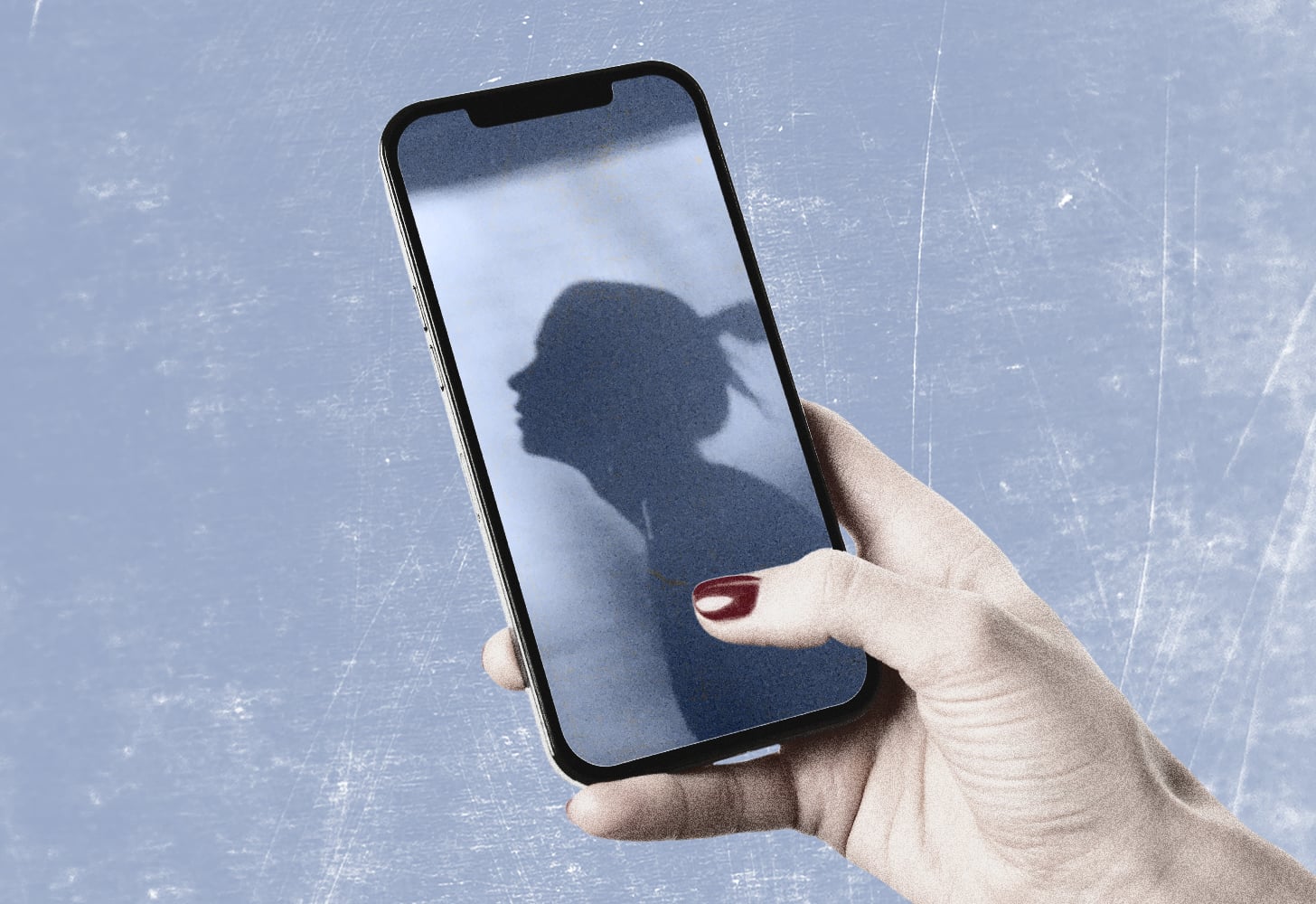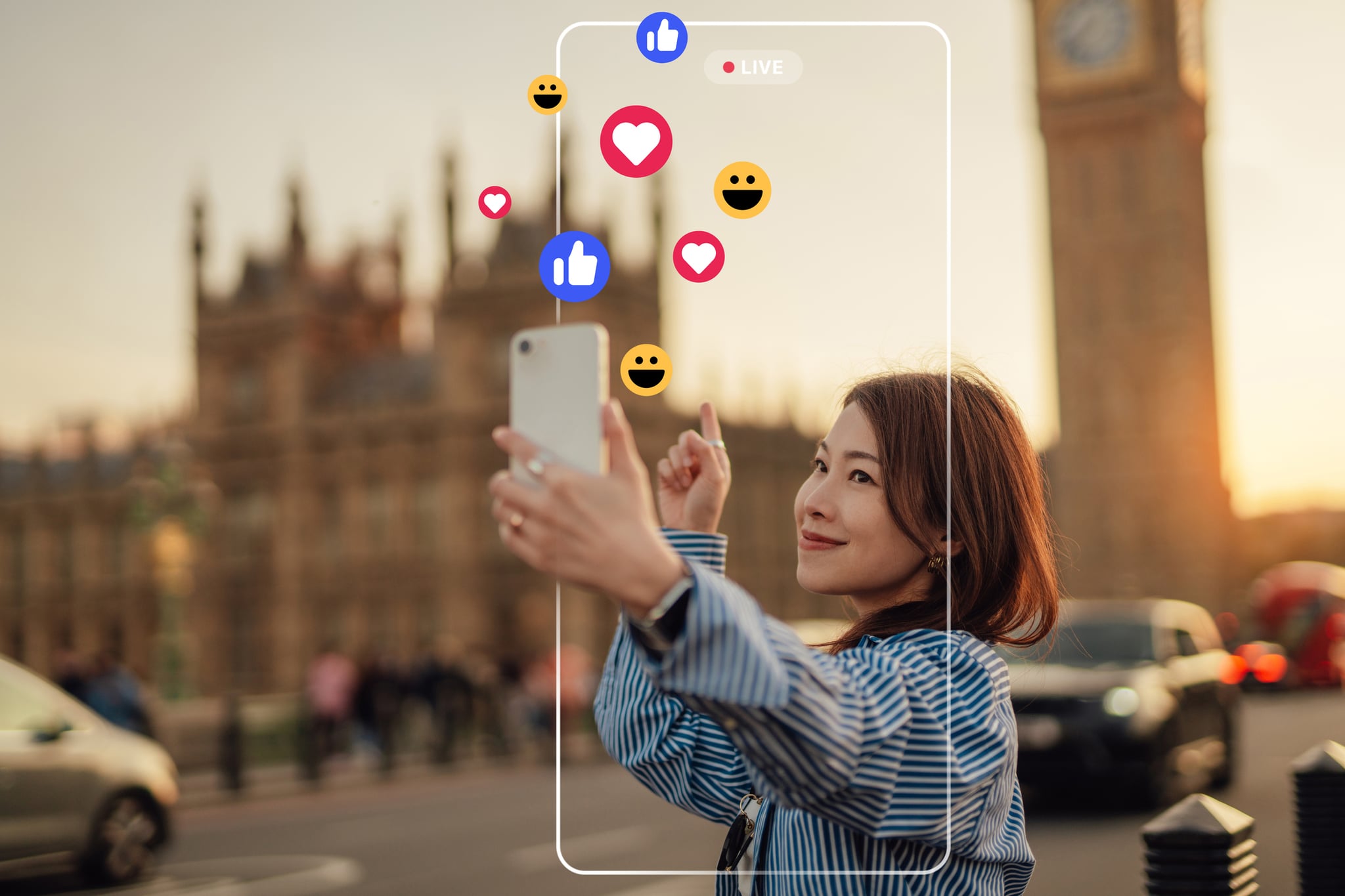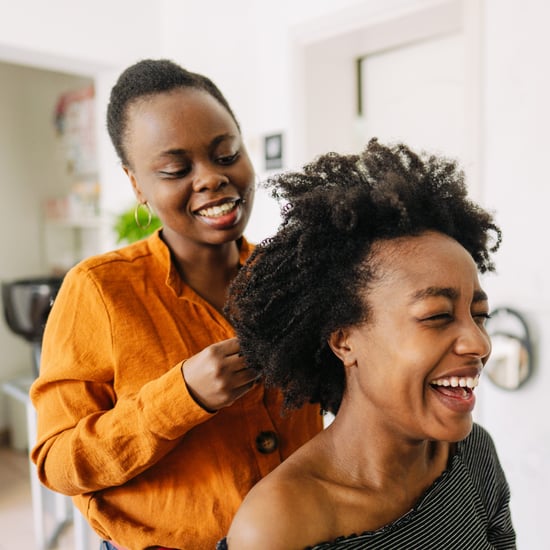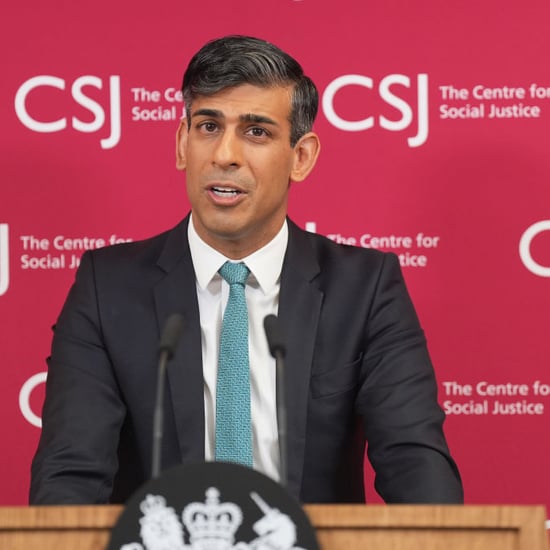Is Social Media To Blame For The Loneliness Epidemic?

Social media's greatest advantage is that it allows us to connect with people all over the world, so why do many of us use it to mask our feelings of loneliness?
According to a recent report from the BBC, half of the UK population admits feeling isolated at some point, with 7 percent of women reporting feelings of chronic loneliness. The NHS also reported that women (24 percent) were more likely than men (20 percent) to report that they felt lonely at least some of the time.
Whilst loneliness was previously associated with the elderly, with the complications of modern day life and the intricacies of social media, isolation is clearly impacting people across generations. The NHS study even broke their findings down by age and reported that younger adults were actually more likely than the elderly to say that they felt lonely some of the time, often or always. This number declined broadly in line with age, from 26 percent of those aged 16 to 34 compared to 16 percent of those aged 65 to 74. Clearly loneliness is a larger epidemic amongst younger adults than many realise - but is social media to blame?

27-year-old *Chelsea from Essex admits that her relationship with social media got so toxic that she deleted the Instagram app last year. "I haven't posted on my Instagram feed for months now because I really wanted to take a step back from social media for a while," she tells POPSUGAR. "I started to realise I was just posting on Instagram when I felt low or lonely to give myself a buzz. I was just masking how miserable I was in life by uploading pictures to Instagram of myself looking happy when I was actually deeply struggling and feeling isolated."
Jade Thomas MBACP, Psychotherapist and Founder of Luxe Psychology Practice, explains our deep ties to social media platforms. "They offer the opportunity to show their online presence by showcasing the best moments and achievements. Therefore, people seek validation, admiration, and recognition from others by highlighting positive aspects of their lives."
But those interactions, however positive, can't compare to in-person connections. Pernod Picard carried out a poll where researchers gathered 3,053 adults to dissect their relationship with social media — and found that their obsession with socialising online meant many were less likely to go out and meet people. Furthermore, 55 per cent of those polled believe social media has altered their relationships with their friends and made them more superficial.
"I was just masking how miserable I was in life by uploading pictures to Instagram of myself looking happy when I was actually deeply struggling and feeling isolated."
Chelsea also revealed that her online friendships were often very surface level. "I made lots of 'friends' across many platforms - but they were actually more like acquaintances," she says. "I only realised this after I took a break from these apps and noticed the void in my life." Which begs the question: are online friends real friends?
In the 1950s, the term 'parasocial relationships' was coined by psychologists to describe the feeling when a person feels a link or closeness to a public figure or celebrity. The danger here is that having an intimate look into that person's life can often breed false feelings of familiarity. So, you may follow a public figure who posts pictures of their house, kids, holidays, special moments or low moments, and begin to empathise with them. That celebrity may even label their followers as friends, or give them fandom names like Taylor Swift's 'Swifties' or Beyoncé's 'Beyhive' which in turn evokes feelings of affection. However, in reality this person likely does not even know who you are.
Does the same apply if that person reciprocates your energy but is still just an online friend? Chelsea tells POPSUGAR, "I'm not saying that people can't find genuine friendships online but mine just lacked depth. I almost forgot that my friends I made online have a whole other life outside of our connection." That authentic in-person connection beyond the filters is clearly what some women are missing out on - and The Lonely Girls Club was created to combat just that.
After struggling to make friends in London, Holly Cooke created a friendship-making club. The group started with small local meet ups five years ago and now boasts over 70k members, making it one of the UK's largest communities for women. Cooke, alongside some volunteers, holds between four to seven events per month for women and non-binary people to mingle. Members range from age 18 to 70 but the average age is around 28.
Cooke told the BBC "Loneliness comes in all shapes and sizes and can impact people at various points in their life, at various ages, and for a variety of different reasons. It impacts all areas of you life, your mental health and physical health, your motivation to go out and do things - it can be pretty all encompassing. I think this desire for friendship, this need for connection is something which people are becoming much more comfortable with talking about and saying 'yes I am lonely but I don't want to stay lonely,' and we are here to help with that." Although social media can create feelings of isolation for some, online communities like The Lonely Girls Club are harnessing the power of these apps to combat loneliness.
Thomas explains that social media can actually be a great tool to curb isolation, but how you use it is key. "The way social media effects your life completely depends how users are interacting with it. On one hand it could be helpful for people's mental health allowing them to stay up to date and connected with friends and family. But on the other hand, it can also lead to increased stress, pressure to compare self to others is heightened leading to decreased self- esteem and happiness or feelings of isolation. Moderation is key."
@aleenakhusro let’s chat about feeling lonely in london (and big cities) & why i think we should normalise losing friends & making new friends in your 20s 💌🤍✨ My london girls fb group city girls club is linked in my bio for any girls looking to meet new wonderful people 🌟 #makingfriendsinlondon #friendshipsinyour20s #honestchats #lonelinessinyour20s
♬ original sound - ALEENA | LONDON LIFE + TRAVEL
It wasn't until Chelsea took a deeper look at her habits that she realised that a huge part of her feelings of loneliness stemmed from comparing herself to others online. "Comparison culture is real, not just with me, but my generation as a whole. I found myself comparing my life to those I followed - from what people had to the amount of friends in their lives." As someone who always had a small number of friends, Chelsea struggled to watch those connections she's always craved blossom over social media in other people's lives. "I've never been someone who had a large friendship groups so, just seeing people post pictures from their big girls holidays together or have huge birthday parties would always make me a bit jealous. I would only spiral more and I just felt even more alone," she says.
Comparison affects everyone - it's human nature. However, with the rise of social media it has become more prevalent in society. Our experts agree that women are more likely to compare themselves due to society's tendency to pit us against each other but Thomas recommends ways to help combat these feelings. "Review how you are interacting with social media," she tells POPSUGAR. "For example, do you find that it is leading you to compare yourself to others or negative thoughts about yourself or body image? If so, put restrictions in place for example track how much time you spend on social media apps, turn off notifications or unfollow accounts that don't make you feel good about yourself."
"I think this desire for friendship, this need for connection is something which people are becoming much more comfortable with talking about."
Whether you're comparing other people's friend groups to your own, or cultivating parasocial relationships in lieu of real-life interactions, it's clear that social media can be linked to feelings of isolation. And that loneliness effects more women in the UK than we think. Fortunately, there are a few ways to combat this. Friendships can be made online but you should still place more value on the reciprocation you receive offline. And be very intentional about how you use and consume information on social media to ensure you have a healthy relationship with these platforms.
If you set boundaries on social media, prioritise IRL interactions, and engage with the online groups helping to combat loneliness, perhaps the negative stigma towards it will change. Although social media can create feelings of isolation if you look towards fostering a community, positive feelings towards these online spaces will emerge.






